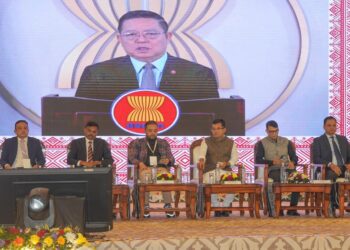
The reduction of the GST rates for rooms that cost less than Rs 7,500 was mostly welcomed by the hospitality and travel associations; however, the withdrawal of the input tax credit (ITC) and the revocation of industry designation continued to be obstacles.
The Hotel Association of India (HAI) said in a statement that the structural changes, which included fewer slabs, were welcome and urgently needed. Only visitors may benefit from the rate reduction of 12 to 5 per cent for hotel accommodations priced at Rs 7,500 and below. The full impact on hotel operators will depend on the effects of the ITC reduction, which experts will need to further evaluate. In fact, removing the ITC may prove harmful for hotel companies operating in the segment and may act as a disincentive for much-needed investment and expansion in the category. Maintaining the tax at 5% while permitting ITC would be advantageous, and we implore the Finance Minister to take this into consideration gradually.
HAI believes that an upward adjustment of the slab could have created more demand, more investment, and more government revenue. The statement also added that the budget and mid-scale hotels are likely to benefit, offering consumers cheaper hotel rooms and a timely boost to domestic tourism as the holiday season approaches.
It was regrettable that the industry had once again fallen short when compared to other consumption-based sectors, despite the fact that hotels provide the necessary infrastructure for tourism, which has been recognised as a crucial pillar of the economy and India’s realisation of its vision for 2047.
In light of this, it stated that one encouraging outcome is that the savings on necessities would lead to more money being spent freely on entertainment and lodging, which would promote overall economic expansion.
More optimistically, K Syama Raju, president of the FHRAI, an organisation that advocates for almost 60,000 hotels in India, said the group applauds the GST Council’s move to split hotel room rates into two slabs of 5% and 12%. Indian hotels will become more affordable and appealing to both domestic and foreign tourists if the tax on rooms up to Rs 7,500 is reduced to 5%. Demand for travel will rise as a direct result of this reform, which will also raise occupancy and stimulate more expenditure throughout the hospitality value chain. This is a constructive step, according to FRAI, that will enable Indian tourism to realise its full potential and make a substantial contribution to the government’s Vision 2047. Even though the hotel industry has been asking for a 5 per cent slab with input tax credit (ITC), as is the case in a number of other nations, the association thinks that the GST Council’s move will have a significant positive impact on the hospitality industry.
“This reduction of GST to 5 per cent from 12 per cent fulfils a long-standing demand of both the travel and hospitality sectors,” stated Rajiv Mehra, general secretary of the Federation of Associations in Indian Tourism and Hospitality. In addition to increasing demand, it will benefit a sizable portion of the organised sector. “We predict that the government will benefit overall since total tax revenue will be the same or perhaps higher as demand increases. It will significantly boost the tourist and hospitality industry’s prospects, especially as the busy travel season approaches. Additionally, gig hiring will increase as a result. We applaud this and believe it to be extremely beneficial for both our industry and the economy as a whole,” Mehra added further.
Follow BOTT on LinkedIn, Facebook, Twitter & Instagram
Subscribe BOTT Channels on WhatsApp & Telegram to receive real time updates



































